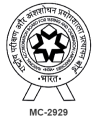Frequently Asked Questions
How should I prepare for my neurological surgery or procedure?
Preparation for neurological procedures varies depending on the specific treatment. Generally, our doctor may ask you to undergo certain tests, such as blood work, MRIs, or CT scans, to provide a clear picture of your neurological health. You may be advised to avoid food and certain
medications before the procedure. Bring your medical records, list of medications, and a family member for support. Our neurology team will give you detailed instructions based on your needs.
What should I bring with me to the hospital on the day of my procedure?
On the day of your procedure, bring essential items such as a list of medications, insurance details, identification card, and any prescribed forms or records. It may be helpful to bring personal comfort items if you are scheduled for a longer stay. Our doctor will inform you if there are specific
items required for your procedure or recovery.
What types of treatments and procedures are available in neurology?
Holy Family Hospital’s Neurology Department offers a range of treatments for conditions such as epilepsy, stroke, multiple sclerosis, Parkinson’s disease, and more. Our services include medication management, surgical interventions, physical and occupational therapy, and
rehabilitation. Specialized procedures, such as deep brain stimulation, nerve decompression, and minimally invasive spine surgery, are also available to address neurological concerns effectively.
How long does a typical neurology procedure take?
The duration of neurology procedures varies. For example, an outpatient MRI may take 15–30 minutes, while more complex surgeries, such as brain or spine surgery, could last several hours. Our neurologist will provide you with a detailed schedule based on your specific procedure and recovery plan.
What can I expect during recovery after a neurological procedure?
Recovery from neurological procedures varies with each patient. You may experience temporary discomfort, fatigue, or changes in sensory abilities. Rest, hydration, and following our doctor’s guidelines are essential. Physical or occupational therapy may be part of your recovery, helping restore strength and mobility. Our team will provide a personalized recovery plan to support you every step of the way.
When can I resume normal activities, such as work or exercise?
The time needed to resume normal activities depends on the type and complexity of your procedure. Some patients may return to light activities within a few days, while others may need several weeks for a full recovery. Our neurologist will give you specific advice on activity levels, and
any physical limitations, and will guide you on when it’s safe to return to work or exercise.
What are the potential risks of neurological treatments and procedures?
Like any medical procedure, neurological treatments may involve risks such as infection, bleeding, or complications related to anesthesia. Specific risks depend on the nature of the procedure. Our team at Holy Family Hospital is dedicated to minimizing risks by using advanced
equipment and practices. Our neurologist will explain potential risks in detail and address any concerns to ensure you feel well-informed and supported.
What are the benefits of undergoing treatment for neurological conditions?
Neurological treatments aim to reduce symptoms, improve quality of life, and, in some cases, slow disease progression. Depending on your condition, treatments may alleviate pain, enhance mobility, improve mental clarity, and help restore normal function. Timely intervention often prevents further complications, making a positive difference in daily activities and overall well-being. Our neurologist will discuss the expected outcomes based on your condition.
Will I need follow-up appointments after my neurology treatment?
Yes, follow-up appointments are essential for monitoring your recovery and evaluating the effectiveness of the treatment. During these visits, our neurologist will review your progress, adjust medications if necessary, and address any post-treatment concerns. Follow-ups may include physical
exams, imaging, or therapy sessions to support your long-term health and recovery.



